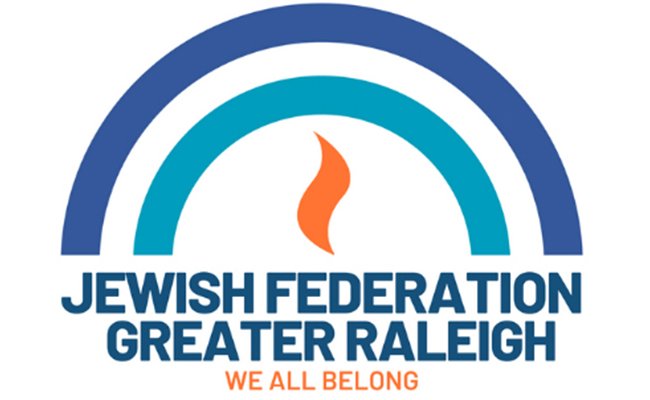Holocaust Education Act: What's Next?
Gizella Abramson
In November 2021, Gov. Roy Cooper signed the state budget. This budget includes the Gizella Abramson Holocaust Education Act, which requires and funds teaching about the Holocaust to 7th-12th grade students. We spoke with NC Council on the Holocaust chair Michael Abramson to learn more about the bill.
Q: What, specifically, is in the Holocaust Education Act?
The Act provides $350,000 for curriculum development, and $400,000 to teach the Holocaust to students. It also defines the topics that need to be covered, including: What is antisemitism? How did the Nazis come to power? The Nazi use of propaganda and military force. What did the Nazis do once in power? What was the Nazi philosophy on diversity?
The Act also covers the role of the US military in liberating concentration camps and setting up Displaced Person camps. Those are the elements we are talking about. We wrote the Act to mirror the Never Again Education Act’s definition of antisemitism passed by the US Congress in 2020. We want students to know about antisemitism as part of the Holocaust.
What distinguishes this Act is that while North Carolina is the 21st state to pass a Holocaust education bill, only nine states have funding included in that. Funding is what makes this a strong Act because it provides resources and standards.
Q: What are the next steps for implementing the bill?
In the next year-and-a-half, we plan to write the 7th-12th grade curriculum, and then in 2023, we start training teachers so that they are trained to teach about the Holocaust. There are three organizations that will oversee curriculum development: North Carolina Department of Public Instruction, North Carolina Council on the Holocaust, and the North Carolina Center for the Advancement of Teaching. We will pool our sources to write the curriculum, and if approved by DPI, the curriculum will be sent to the North Carolina Board of Education for approval. If approved by the Board of Education, the curriculum becomes mandatory for schools to follow.
Q: What challenges might you face as you rollout the curriculum and training?
Moving forward, with all the teacher relocations and turnover, we’ll have to continue to train the teachers, and that’s where funding may be a problem in the future. The NC Council on the Holocaust has trained about 500 teachers a year in Holocaust education since 1992. 500 is a drop in the bucket if you are talking about thousands of new teachers a year in 7-12 grades. You don’t want an ignorant teacher or a teacher with revisionist ideas teaching about the Holocaust to students.
Q: What was the strategy to get the bill passed?
We went to each branch of the North Carolina General Assembly, and started with the education committee. We worked through them to get the bill approved. Once approved by the committees, it went to the full House and Senate to be part of the budget. The Senate and House budgets then needed to be reconciled into one budget. Once passed by the House and Senate, the governor signed it. We opted to go through the consolidated budget route instead of the non-budget route because we thought that had the best chance of success. Our Act is one of the few that had bipartisan support.
Q: What inspired you to get involved in this effort?
My mother was a Holocaust survivor. She was the primary speaker in the state, the “Elie Wiesel of North Carolina.” She traveled to every school system in the state to speak to students in schools about the Holocaust. That influenced me, and I was voted onto the NC Council on the Holocaust in 1994, became Vice Chairman in 1997, and became chair in 1999.
Holocaust education has been a passion for me, as well as teaching the values of inclusion and democracy. We started the effort to get the Act passed in 2018, but the governor and both houses couldn’t agree on a budget. Same thing in 2019 and 2020. Finally, there was an agreed upon budget this year.
Q: What should people do if they want to get involved?
Contact me if you want to get involved. We want people who know school teachers in public schools. We want to interview school teachers and their students who learn about the Holocaust for our quarterly newsletter. We also want to talk to donors who are willing to fund education for school teachers, and individuals who speak about the Holocaust who would be willing to talk. We are especially interested in children or grandchildren of survivors. These are the types of people who can help us.
We’d also like to connect with people who are influential in politics in either party and know school and political officials at all levels, and people who know school superintendents and have worked with public schools.
Q: What do you want people to understand about the Holocaust Education Act?
I talk to many people who call the Holocaust a “Jewish event.” Principals tell me they don’t want teachers to attend Holocaust Council teacher workshops because the Holocaust was a Jewish event and they have no Jewish students. I want people to understand that the Holocaust is a values subject about teaching the importance of diversity, inclusion, and democracy, and it’s important for students to understand what happens when people actualize hate. What happened in the 1930’s is happening in parts of our state, and people are using Holocaust symbols and language inappropriately. We have to teach children why this is wrong. Part of the challenge is to get into people’s minds, especially high school students who have preconceived notions. It’s difficult in a contentious political environment.

